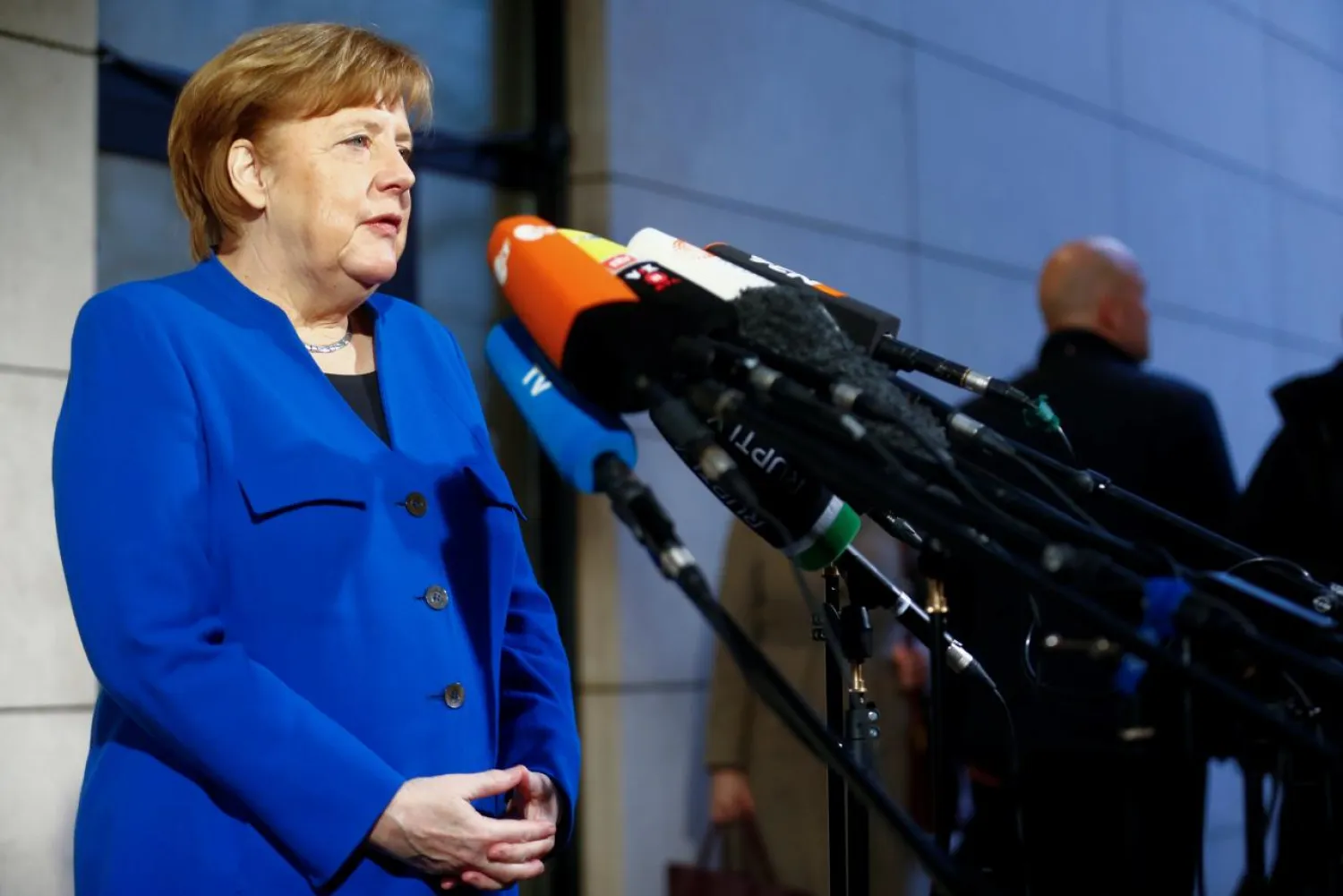German Chancellor Angela Merkel reached on Friday a preliminary deal with her Social Democrat (SPD) rivals to pave the way for government coalition talks.
This marks an end to months of uncertainty that has undermined Germany’s global role and raised questions about her political future.
But the deal to revive a “grand coalition” that has governed since 2013 must be approved by SPD party members at a congress planned for January 21. Some fear further association with Merkel’s chancellorship could erode the influence of the SPD which suffered the worst result in September’s election since the modern Federal Republic was founded in 1949.
“We have felt since the elections that the world will not wait for us, and in particular regarding Europe we are convinced we need a new call for Europe,” Merkel, who has played a central role in tackling crises over the euro and refugees, told journalists after talks that had run through the night.
A 28-page blueprint pledged close cooperation with France to strengthen the euro zone.
Weakened by an election setback in September, Merkel turned to the left-leaning SPD to renew their grand coalition after the collapse in November of talks on a three-way coalition with the Greens and Free Democrats (FDP).
Germany is unfamiliar with the long negotiations that mark coalition building in many neighboring countries. The dominance of the SPD and the conservatives long ensured smooth government transition. But elections last September saw the rise of the right-wing Alternative for Germany which upset the arithmetic.
Merkel was eager to avoid any repeat elections or attempt at a minority government.
“There will be difficult tasks to come,” Merkel said. “The coalition negotiations probably won’t be easier than the exploratory talks.”
Horst Seehofer, head of the Bavarian sister party of Merkel’s Christian Democrats, said a government could be in place by Easter - March or April.
As Europe’s largest economy and preeminent power broker, Germany is crucial to the region’s fortunes. Berlin’s partners are eagerly awaiting a new government to help drive forward Brexit talks, euro zone reform and EU diplomatic initiatives.
European Commission President Jean-Claude Juncker, speaking in Sofia, described the deal as a huge benefit for Europe.
On the domestic front the blueprint, open to revision, foresaw tax relief for citizens of 10 billion euros over the three years to 2021 as well as extra spending on home-building, education and research.
The blueprint showed the two parties aimed to gradually abolish the “solidarity tax” introduced after reunification in 1990 to support poorer eastern states.
On foreign policy, it said they would introduce further limits on arms exports and immediately end arms sales to countries involved in the Yemen conflict. They would also rein in progress in EU accession talks with Turkey.
The blueprint also foresaw Germany generating 65 percent of its energy from renewables by 2030.
The euro climbed to a three-year high after news of the breakthrough in the talks. In early London trading, the euro rallied 0.7 percent against the dollar to hit its highest levels since January 2015 at $1.212.
The potential deal on a new government raises the chance for limited cooperation with French President Emmanuel Macron on steps to fix flaws in the euro currency union and to make it more robust against crises.
The joint document that emerged from preliminary coalition talks includes a call to "sustainably strengthen and reform the eurozone in close partnership with France."
It also mentions investment spending in the next multi-year EU budget that "could be the point of departure for a future investment budget for the eurozone."
The euro's lack of a central fiscal pot to even out recessions has been discussed as one its weaknesses. But Germany has so far resisted even limited proposals for fear of creating permanent transfers from its taxpayers to more troubled countries.









